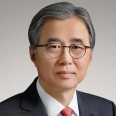The global trade order is shaking as President-elect Trump, who pledged to impose a 60% tariff on Chinese goods and a 10–20% blanket tariff on all imports from the rest of the world if re-elected, has shown his determination to put these ideas into action. He vowed to sign an executive order imposing a 25% tariff on all goods entering the United States from Canada and Mexico from January 2025. He also vowed to impose an additional 10% tariff on Chinese imports above the already proposed 60% tariff.
President-elect Trump’s attitude recalls the U.S.-China trade war during his first term in office when he raised tariffs on Chinese goods from 3.1% to 21.1%. His recent comment is shocking because these tariff vows are being made indiscriminately, disregarding agreements and established practices.
President-elect Trump should know that trying to realize “America First” through the tariff war cannot avoid criticism that it is the resurgence of American unilateralism. Rather, it can have an adverse effect on the United States’ international reputation and the global economic order. From the end of World War II to the present, the United States won the Cold War by rallying the Western bloc around two pillars: liberal democracy in politics and free trade in economics. In the past, the first Trump administration criticized China as a “revisionist power” that was “undermining the international order.” However, the United States cannot be immune from the same criticism that its unilateral tariffs are also undermining the international order, which will position China as an alternative.
President-elect Trump’s protectionism will inevitably harm American consumers. He may believe that imposing higher tariffs would be beneficial for American employment because foreign companies will build factories in the United States. However, given the high wages in American society, this will drive up commodity prices and erode the purchasing power of American consumers. The Peterson Institute for International Economics (PIIE) in Washington expects inflation to rise from 6% to 9.3% by 2026.
Another problem is that President-elect Trump’s tariff vows deviate from the typical purpose of tariffs. ‘Tariffs’ are usually imposed to rectify unfair trade practices such as subsidies or correct excessive trade imbalances. However, the latest tariff announcements are retaliatory in nature and focused on non-trade issues such as drugs and illegal immigration. During the last U.S.-China trade war, China filed a complaint with the WTO against the U.S. tariffs, arguing that the United States is undermining the fairness of the global trade order. As other countries lose trust in the United States they will tilt towards China and increase China’s influence.
If the perception that the United States is a large and selfish country grows, its reputation will be shaken, and it will be isolated in the international community. The United States must reflect on what its biggest strength is in the era of U.S.-China strategic competition. Many countries agree with American values and support its strategies because, unlike China, they regard the United States as guided by more than just self-interested unilateralism. If the United States thinks that it is the sole “great power” and that only its “core interests” matter, will it be able to maintain these strengths?
The first Trump administration’s obsession with small profits hurt the U.S. global leadership. One can only hope this will not be repeated. President-elect Trump should reflect on what the biggest strength of the United States is in the era of U.S.-China strategic competition and what will help “Make America Great Again.”
* The view expressed herein was published on December 15 in The Chosun Ilbo and does not necessarily reflect the views of The Asan Institute for Policy Studies.

 Facebook
Facebook Twitter
Twitter